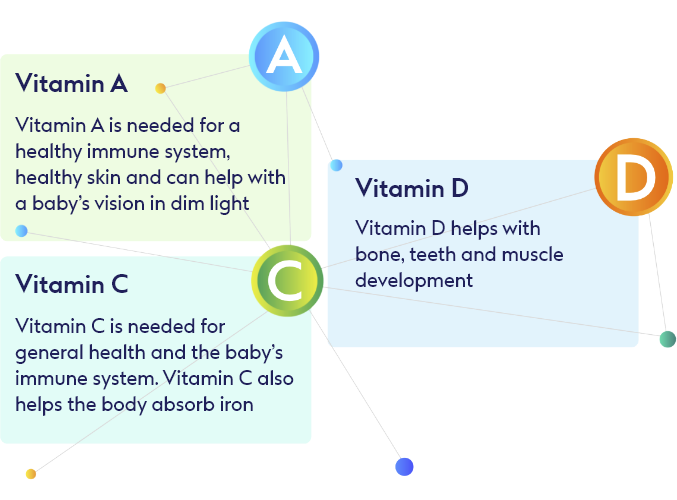FEEDING1
Feeding a baby can often be overwhelming for parents and caregivers, so it is important that you are equipped with the appropriate knowledge to support your customers.
Click on each of the cards below to find out more information about each method of feeding.
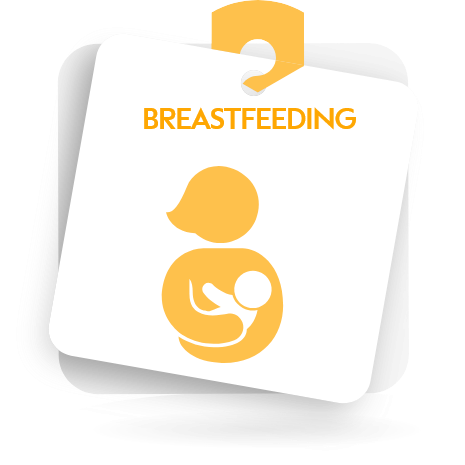
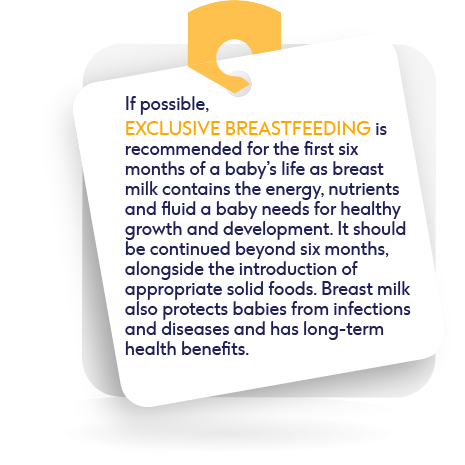
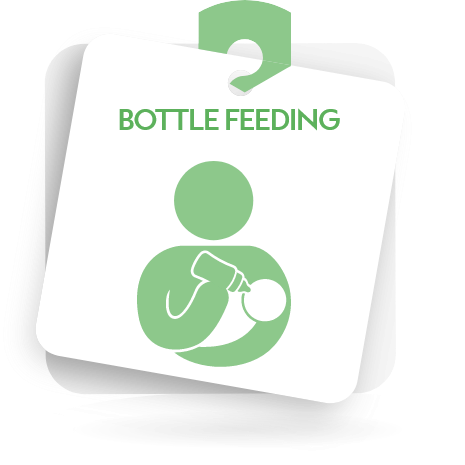
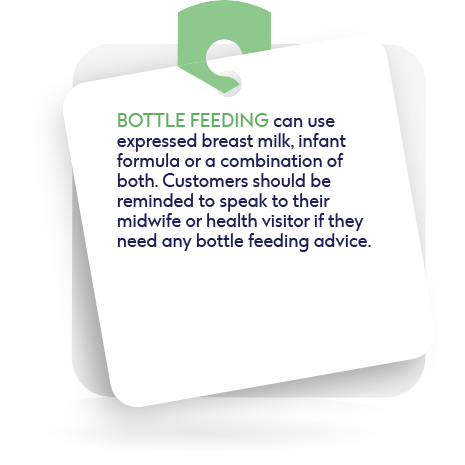

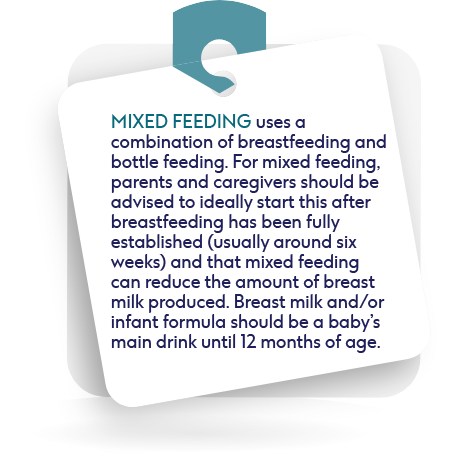
Remember: Not all women are able to breastfeed, some choose not to, and others may decide to use a mix of bottle feeding and breastfeeding (mixed or combination feeding).
BURPING2
When a baby swallows, air bubbles can become trapped in their tummy which can cause discomfort. Some babies are able to burp easily, while others may need assistance.
Customers should be reminded of the importance of burping/winding their baby during and/or after feeds. There are no set rules on when babies should be burped - some need burping during a feed, some afterwards.
There are a few ways to burp/wind a baby - e.g. over the shoulder, sitting on the parent/caregiver's lap and/or lying across the lap. Customers should be advised to try them all and see which works best, remembering the three key points:
- Ensure the head and neck of the baby are supported
- Make sure the baby's tummy and back are straight
- Rub/pat the baby's back gently.

At the beginning, babies will still get most of their energy and nutrients from breast and/or formula milk. As solid food is introduced and the amount and variety of foods offered gradually increases, the toddler will soon be eating the same foods as the rest of the family, in smaller portions. To avoid the risk of choking, parents and caregivers should be advised to stay with their baby when weaning is introduced.5
VITAMINS6
When parents and caregivers purchase vitamin supplements for a baby, it is important to check:
- The feeding style of the baby (i.e. if they are breastfed, bottle fed or combination fed)
- The label of the product to ensure it is age appropriate.
Vitamin D recommendations
The Government recommends:
- Breastfed babies from birth to one year old should be given a daily supplement containing 8.5 to 10 micrograms of vitamin D to make sure they get enough (even if the mother is taking a supplement containing vitamin D herself)
- Formula-fed babies should not be given a vitamin D supplement until they're having less than 500 ml (about a pint) of infant formula a day, as infant formula is fortified with vitamin D and other nutrients7
- Children aged one to four years should be given a daily supplement containing 10 micrograms of vitamin D.
Vitamin A and C recommendations
The Government recommends children from six months to five years take a daily supplement containing vitamins A and C, as well as vitamin D supplements.
